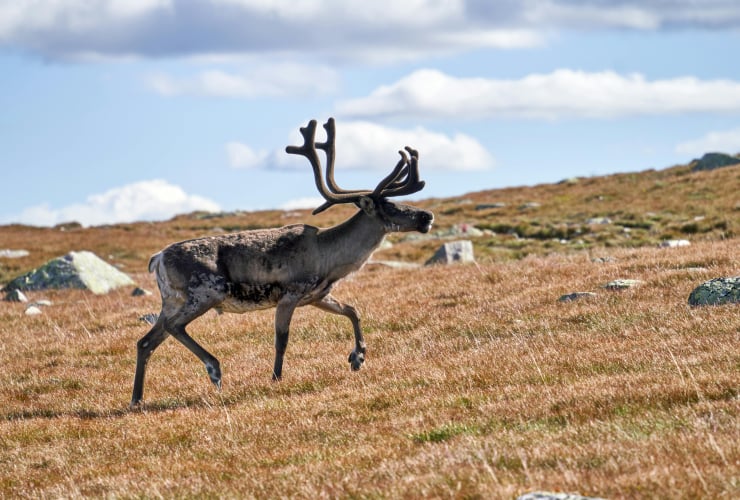The 2024 federal budget reinforces Canada’s ambitions to be a global supplier of critical minerals. Corporate tax incentives and shorter environmental review periods have been added to a previous commitment to $4 billion in support of the extraction of copper, lithium and other essential minerals for green technologies such as electric vehicles, solar panels and wind turbines.
Amid a global fight to secure critical mineral supply chains, Canada highlights its environmentally sustainable extraction approach, anchored in “respect for indigenous rights and treaties.”
What does all this look like on the ground?
The Kudz Ze Kayah (KZK) mine in southeastern Yukon is a test case: one of the first critical mineral mines approved since Canada released its Critical minerals strategy in 2022. After a highly contentious environmental review and multiple legal challenges, the federal and Yukon governments approved the open-pit copper/lead/zinc project last month. Kudz ze kayah means “caribou country” in the kaska dena language — an ironic name for a mine opposed by the Kaska First Nations that could lead the Finlayson caribou herd to extinction.
As environmental assessment and caribou experts, we are outraged by the mine’s approval, but not shocked. Caribou are something of an indicator species for the health of our regulatory systems: Indigenous rights to harvest caribou are affirmed in the Constitution and the most vulnerable herds are protected by species at risk legislation.
This should make it impossible to propose mines in critical caribou habitat. But it’s not like that. In the studies we have carried out on each mine evaluated by the BC, Nunavutand federal Since the mid-1990s, environmental assessment agencies have approved 71 of 73 projects with potential impacts to caribou, even with overwhelming evidence of irreparable harm. For all the industry rhetoric about environmental “bureaucracy” hindering development, in practice, environmental assessment in Canada is an approval machine, and it is about to become even more “streamlined.”
Even with this sorry record, the KZK’s approval is alarming. If built, the mine will operate for only nine years, but it will destroy the calving grounds of an already struggling herd and poison a sacred site the Kaska consider their “barn.” KZK is strongly opposed by the two Kaska First Nations on whose unceded territory it will be built; its approval violates their rights to make decisions about their lands and undermines your well-beingwhich is directly linked to the health of the earth.
If ever there was a mine that our regulatory systems ought reject, is this. In fact, the federal government came close to rejecting it, citing concerns about caribou and Kaska rights. But construction is expected to begin this spring.
We are told that this is the unfortunate but necessary cost of a strong economy. It’s not.
Canada is positioning itself as a global destination for the extraction of #CriticalMinerals. Are we willing to destroy herds of caribou and trample on indigenous rights to do so? write Emilie Cameron, Rosemary Collard and Jessica Dempsey. #cdnpoli
Most Canadians want to honor indigenous rights and protect endangered species; 80 percent support limits for industrial activity for this purpose. They want jobs and economic security, but they also want thriving ecosystems and decent lives for all. We can have both.
However, to get there we must confront what is really happening in Canada’s extractive sector. The mines we approve are built and operated almost exclusively in the interests of investors and shareholders, open and closed at the whims of commodity markets, rarely comply local and indigenous hiring objectives, exaggerate and underestimate your economic benefits, decline implement environmental protections and file for bankruptcy periodically, leaving taxpayers with cleanup costs. Our system does not serve the public interest; It channels collective wealth to a few and leaves us with leftovers (and mess).
You don’t have to be a political radical to see the value in doing things differently. In Norway, the government collects a massive 78 percent corporate tax on oil and gas revenues and uses it to fund its world-class social safety net. In the Yukon, mining companies pay a paltry three percent royalty rate on reported profits, up to a maximum of 12 percent, but most mines pay nothingeither because they cancel expenses, refuse to pay or they are abandoned.
As global interest in critical minerals increases, it is time we have a serious conversation about how to harness Canada’s resource wealth. An extractive sector that truly protects precious lands and species, provides good, lasting jobs, respects Indigenous jurisdiction and rights, and uses profits to fund things we all value – healthcare, education, affordable housing – is absolutely within our reach.
It’s time we start building an extractive economy that works for everyone.
Emilie Cameron, associate professor, Carleton University.
Rosemary Collard, Associate Professor, Simon Fraser University.
Jessica Dempsey, associate professor, University of British Columbia.

